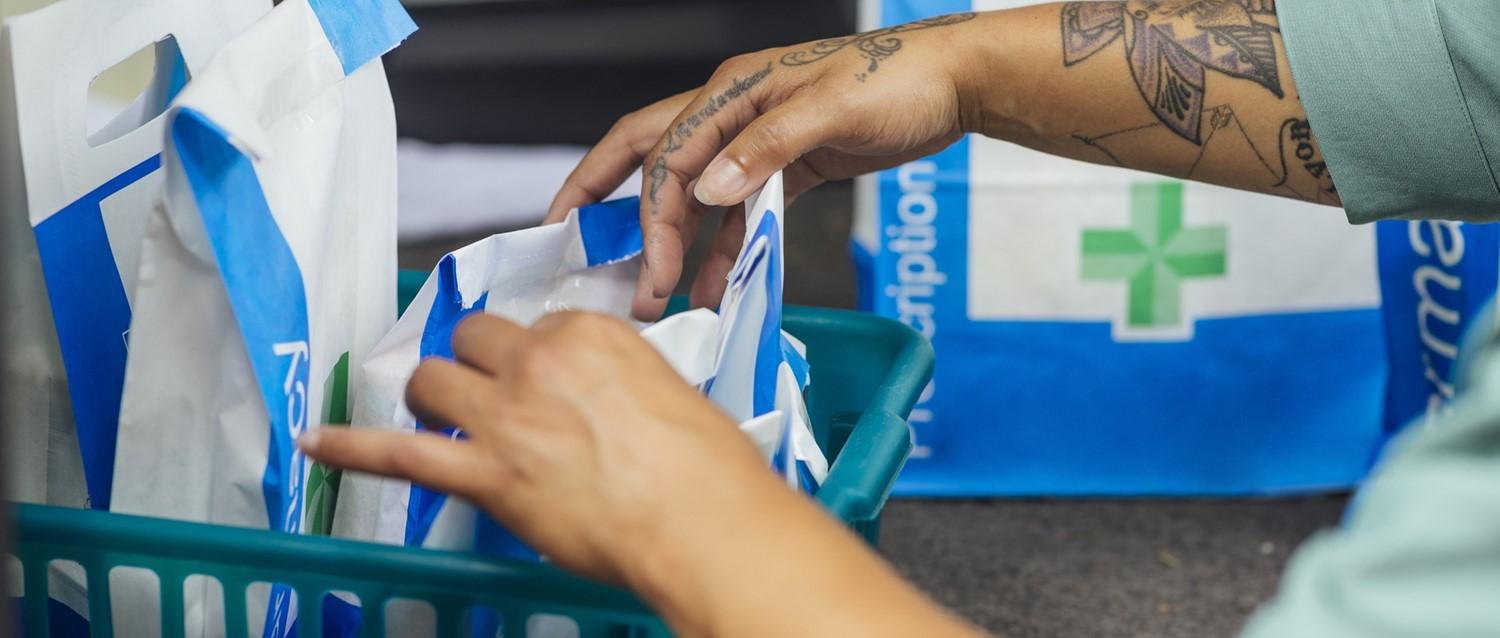
Prescriptions: your questions answered
Peer reviewed by Dr Sarah Jarvis MBE, FRCGPLast updated by Gillian HarveyLast updated 23 Aug 2021
Meets Patient’s editorial guidelines
- DownloadDownload
- Share
- Language
- Discussion
Pharmacies offer a range of services, including dispensing our medications when we need them. But you might have some questions when getting your prescription, so we've found the answers to some of the most frequently asked as a handy guide.
In this article:
Continue reading below
Why do I have to pay for my prescription?
When you pick up your prescription you may be asked to pay a fee if you cannot prove you are exempt. There are no prescription charges for residents in Scotland, Wales and Northern Ireland. The current cost of an NHS prescription in England is £9.90 per item dispensed. This money goes towards funding the NHS.
However, you may be exempt if you:
Are under 16 (or aged 16-18 and in full-time education).
Are over 60 years old.
Are pregnant or have had a baby in the past 12 months.
Have a disability or illness that entitles you to a medical exemption certificate.
Have a war pension exemption certificate.
Are being treated as an in-patient.
In addition, you may qualify for exemption from prescription charges if you or your partner are on income support, universal credit or other means-tested support.
In the case of maternity, qualifying illness or exemption due to income, you will need to apply for a certificate. You can use the NHS website to determine your eligibility and find out how to obtain a certificate.
If you don't qualify for free prescriptions, but have to regularly pay for a medication, it's worth checking if buying a pre-payment certificate (PPC) would save you money. This entitles you to make a one-off payment to cover the cost of prescriptions over a period of time. A three-month certificate costs £32.05 and a twelve-month certificate costs £114.50.
What is a repeat prescription?
Back to contentsRepeat prescriptions are issued for certain medications prescribed for ongoing conditions. If your doctor puts you on a repeat prescription, this means that you can obtain your medication from the pharmacy without having to visit the GP for an appointment every time you need it.
If you are signed up to an appointments and medication management app like Patient Access, you may be able to set up a repeat prescription online, making the whole process streamlined and convenient.
In addition, "All pharmacies operate a repeat prescription service, which is when the pharmacy is responsible for ordering your medication in time for you to pick it up. When you collect your medication, you can tick what you want for next time. The pharmacy will keep the prescription and a week before it's due, they'll put in a request for your medication to the GP practice so you wouldn't have to pick it up," explains LloydsPharmacy Pharmacist, Anshu Kaura.
However, you do need to be aware that not all GPs allow the pharmacists to order your prescription on your behalf (third-party ordering).
If you don't have access to repeat ordering through an app such as Patient Access and your practice doesn't allow your pharmacy to offer on your behalf, the practice may allow you to email or phone to order your prescription. This can then be sent to your chosen pharmacy.
Continue reading below
Will my medicine be available?
Back to contentsPharmacies usually have a stock of frequently used medications available at all times, but occasionally you may find a certain drug will need to be ordered in. "Most of the time, common drugs will be available, but if you come at a time when today's stock has been used up, you may be asked to wait until the following day.
"If there's a shortage of a certain medication, we might advise you to get an alternative prescribed by your GP. But that advice will be given to you when you come in with a prescription," she adds.
Why does my medication look different?
Back to contentsSometimes GPs prescribe a 'generic' medication - this is when a medication is produced by several different companies. This means you may find that the packet or appearance of your medication changes from time to time.
Because the cost of the same branded medication can be many times the cost of a generic medication with the same ingredients, the NHS encourages generic prescribing wherever possible. With very few exceptions (such as some epilepsy medications), all generic medications have exactly the same effects and side-effect profile as their branded equivalent.
"If your prescription is a generic, then we can supply the medication from any company who makes that drug," explains Kaura. "If the GP has prescribed a certain brand, we cannot offer an alternative - we would only ever supply what's on the prescription."
If you are concerned about the appearance of your medication, speak to your pharmacist.
Continue reading below
Can I pick up a prescription for someone else?
Back to contentsYes! "A prescription can be picked up by someone who is not the patient, as long as they can confirm the patient's name and address," explains Kaura.
"The only real concern is if they are on controlled drugs (for example, certain painkillers and medicines that help with addiction, such as methadone). In that case, we might need to see ID before we can hand it over," she adds.
Why hasn't my GP issued a paper prescription?
Back to contentsIn the past, all GPs wrote or printed paper prescriptions for the patient to take to the pharmacy. Now GPs almost always use the NHS Electronic Prescription Service (EPS). This means that your prescription will be sent electronically to the pharmacy, bypassing the need for a paper copy. "EPS makes the process even easier," says Kaura. "When you go to the GP you will have to nominate a pharmacy to pick your medication up from, but this can be changed at any point. The prescription will stay on a cloud (a virtual server) until the issuing pharmacy accesses it."
Can I use an online pharmacy?
Back to contentsWith so many opportunities to shop and socialise online, getting your medication online may seem like a straightforward option. But some online pharmacies are unregistered, meaning the medication supplied doesn't need to meet industry standards. This means medication obtained online may be incorrect or even fake.
If you do decide to try an online pharmacy, use the General Pharmaceutical Council's internet pharmacy logo scheme to find a genuine online pharmacy. The pharmacy will need a valid prescription - not an emailed copy - which means using the EPS or even posting a paper copy yourself before it can issue your prescription.
Using an online service may be a more convenient option for some, as medications can often be posted to your home or delivered to a local pharmacy for collection. But it's crucial to do the necessary checks before ordering your prescription online.
Patient picks for Medicine information

Treatment and medication
Are you too reliant on painkillers?
Virtually all of us have taken painkillers at some point in our lives, and they can certainly offer short-term relief from pain. But national guidance from NICE (the National Institute for Health and Care Excellence) encourages doctors to steer away from them for many people with pain. It's not because they want anyone to suffer - far from it. It's because of the risk of becoming addicted to prescription painkillers, which can cause even more problems than the original pain.
by Dr Sarah Jarvis MBE, FRCGP

Treatment and medication
Do beta blockers help with anxiety symptoms?
Whether you had sweaty palms before an exam or a racing heart before a driving test, we’ve all experienced the symptoms of anxiety from time to time. These physical reactions can be hard to cope with - especially if you need to perform under pressure - but medication called beta blockers can help provide some relief.
by Lydia Smith
Continue reading below
Article history
The information on this page is peer reviewed by qualified clinicians.
23 Aug 2021 | Latest version

Ask, share, connect.
Browse discussions, ask questions, and share experiences across hundreds of health topics.

Feeling unwell?
Assess your symptoms online for free
Sign up to the Patient newsletter
Your weekly dose of clear, trustworthy health advice - written to help you feel informed, confident and in control.
By subscribing you accept our Privacy Policy. You can unsubscribe at any time. We never sell your data.